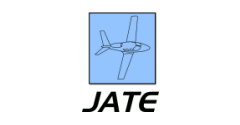Abstract
This study investigates the quality of service provided for air travel in Nigeria and the level of satisfaction of passengers with the service encountered. It does so by focusing on both the airports and the airlines as service providers. In that way, the study captures much of the effects of the organizational culture, employee behavior, and general norms which influence passenger attitudes. The SERVQUAL model was used in measuring the five dimensions of service. Domestic travel only was studied, with data obtained from well-structured questionnaires to evaluate perception–expectation gaps in airports as well as in airlines. The overall gap score of the Nigerian airports shows an average airport quality of service with a value of 21.8179. This reveals that the perceived service quality is less than passengers’ expectations in Nigerian airport service operations. In the same vein, the gap score of the Nigerian airlines shows an average airline quality-of-service gap with a value of 21.32, which is generally low. This means that the passengers or customers of the airlines during the response period were expecting more service quality from the airlines in the country. The level of service at Nigerian airports needs to be improved so as to encourage passengers to use the airports and as well reduce many queues at baggage collection areas. The air travel industry is currently challenged in a recessed economy resulting in lower service standards, lower patronage, increased missed trips, flight cancellations, passenger complaints, and faltering loyalty. The findings of the study will, therefore, be useful to the managers of airports and airlines, the economic regulator of the aviation industry, and other stakeholders.
Recommended Citation
Nwaogbe, Obioma R.; Ogwude, Innocent C.; A, Ejem E.; and Pius, A
(2021)
"Service Quality and Passenger Satisfaction in Air Transportation in a Developing Economy: Evidence from Nigeria,"
Journal of Aviation Technology and Engineering:
Vol. 10:
Iss.
1, Article 4.
Available at: https://doi.org/10.7771/2159-6670.1207


